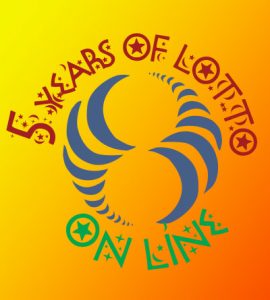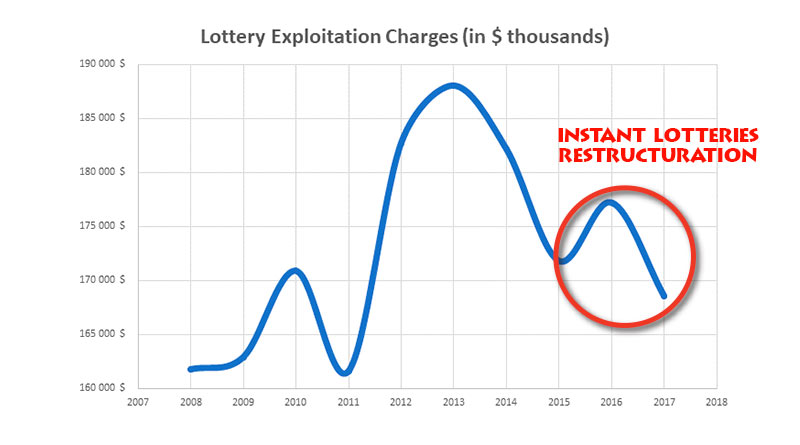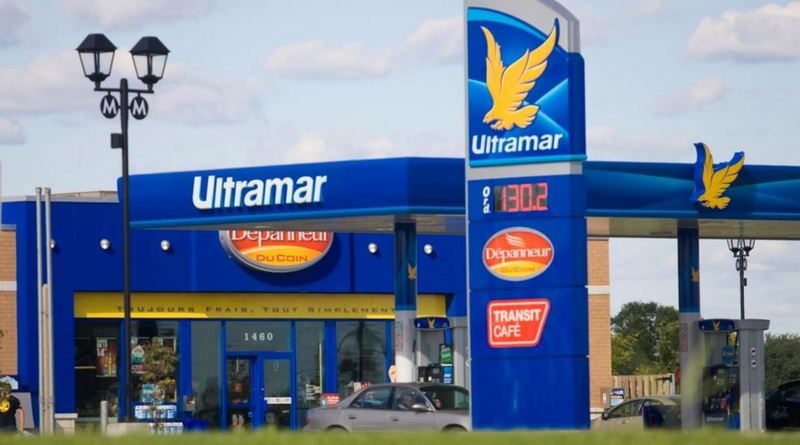Part 2 – Unbelievable But True : Loto-Québec GRANTED Commissions On All Online Sales In 2012 Then Retrieved Them In 2016!
It’s been over five years now since Loto-Québec started selling online lottery, a move that initially sparked great concern among retailers.
So five years later, where are we? As part of our SPECIAL FEATURE LOTO-QUÉBEC, FIVE YEARS OF LOTTERY ONLINE, DepQuébec takes a deep look at the phenomenon throughout the week to assess its various impacts on brick-and-mortar retailers.
Today, in the second part of this series, we look at the online lottery sale commissions granted to retailers and then retrieved.
While Loto-Québec proudly highlighted during the announcement of the upcoming online lottery launch in 2012 that “the partners and various associations that represent the retailers have been involved in the development of the project”, it kept a very low profile when, four years later, the same Quebec Lottery Corporation retrieved all the commissions granted on online sales to retailers and this, without any consultation, public announcement or endorsement of anyone, and all this without a single mention in any of its annual reports!
But the fact is that Loto-Québec enjoys a total monopoly over lottery and gambling. And the fact is that it can do pretty much whatever it wants with retailers. Well, it shows.
The story, at least, is worth telling.
A failed announcement
One will remember that in November 2011, Loto-Québec had created a wave of anger after having leaked in the media its intention to sell lottery online, showing very little empathy for retailers, its main partners.
The story made the Journal de Montréal front page while a Loto-Québec spokesman dismissed the potential negative impacts that online sales could have on retailers, emphasizing that “customers will decide. There are some who will continue to buy their lottery at their favorite retailer. It’s simply an expanded choice and retailers will understand the situation.” Well, not really!

This is reminiscent of similar reactions in Massachusetts (see article here) and elsewhere in the U.S. where several lottery Corporations that are trying to convince their legislature to authorize the sale of online lottery have to deal with angry and concerned retailers.
So all this started on the wrong footing. But it is at such times that allies are useful and the idea of consultation gains traction.
The state-owned Corporation then felt appropriate to sit down with the main retailer groups to develop and agree on some kind of compensation package that would allay their concerns.
A few months later, on August 9, 2012, Loto-Québec announced the upcoming launch of online lottery along with a three-tiered retailer commission system: 6% to the consumer-designated retailer (the prevailing rate for in-store purchases), 2% to non-designated retailers and distributed on a pro rata basis to all retailers and 1% jackpot commission (same principle, ie either to the designated retailer or to the whole). This system gives retailers the same privileges as if they were selling the lottery in-store to the extent that consumers associate a sale to a retailer.
“Online lottery sales are an interesting development for retailers as consumers will be able to designate a retailer. Each designated retailer will receive the same commission as it would for an in-store sale. If a customer does not designate a retailer, a percentage of its purchase will be distributed to all retailers in proportion to their sales figures. This project comes to fruition after months of constructive discussions between the Corporation, retailers and the associations representing them.” — Loto-Québec, August 9, 2012 press release
The President of Loto-Québec in 2013, Gérard Bibeau, also justified this system by the fact that it opens the possibility of promoting online lottery in stores.
“Online sales also have great potential for retailers, as consumers now have the option to designate a retailer when they buy from the web to receive the corresponding commission. In exchange, Loto-Québec can promote online lotteries in its network’s point-of-sales.” – 2013 Loto-Québec Annual Report, page 20
At the time of the announcement, the three retailer associations consulted provided enthusiastic endorsements, emphasizing “the integration of retailers in this project” (ADA), “the openness to our concerns” (AMDEQ) as well as “the importance of taking into account the interests of small retailers” (CFIB).
In addition, in a separate statement issued simultaneously, CFIB Vice President Martine Hébert went so far as to say that it is “fundamental that retailers receive a commission”. Contacted by DepQuébec as part of this series to find out if they have been made aware of Loto-Québec further changes and approved them, CFIB did not return our call. For its part, the Association des Détaillants du Quebec (ADA) told DepQuébec “to have been informed of the changes and found (because there was initial reluctance) that the impact was minimal for each business”, according to the Director of Government Affairs, Gaëlle Leruste. That said, the group could still address the issue in future discussions with Loto-Québec.

Thus, during four years, all online lottery purchases generated “similar commissions to in-store sales” – for those that were designated – and this, thanks to the lobby effort of these associations. We do not know, however, if scratchers that ended up sold online later on, were commissioned “as in store” since their commission is 8%, not 6%. Loto-Québec has never released any statistics on commissions paid from 2012 to 2016 specifically for online sales, but we know from talking to retailers that amounts have been paid out every three months during this period.
According to a Loto-Québec internal document obtained exclusively by DepQuébec, the Corporation claims that the average commission paid per year through this system was 3% of total sales, which probably means that 25% of online sales were commissioned at 6% while 75% were commissioned at 2%, for a total average of 3% on sales. Having not obtained the figures from Loto-Quebec, which, in reaction to DepQuébec’s requests, chose to hide behind the Access to Personal Information Act, we are unable to verify this assertion.
The beauty of this system, in reality, was not so much about the amounts – still modest at the moment – as for the principle of pocketing a guaranteed kickback for life on all online sales and related jackpots. Until now, commissions paid to retailers could reach, we were told, about $ 20 to $ 30 every three months, depending on the sales volume of a retailer. But nothing prevented them, too, from promoting or reminding their customers to designate them online so that the 6% commission potential could be leveraged further. Certainly, what a wonderful system and what a great insurance policy for the future this system was!
Too good to be true
The decline in lottery sales in general – in the magnitude of 30% in 10 years – which we reported in Part 1 of our series yesterday, was not accompanied by a similar decline in Loto-Québec’s operating expenses for lotteries: in 2015, these expenses were nearly 10% higher than in 2007. In response, the Corporation undertook a drastic reduction of its operating costs… by transferring part of the burden of managing scratchers on the retailers’ shoulders, aiming to save $ 10 million annually.
The reforms undertaken by Loto-Québec in 2016 have thus displeased more than one (see the following French article on this topic). Because while previously, representatives on the road were hard at work to provide good service to retailers and supply them with tickets, cards, rolls of paper for the terminal and others, from now on it is up to retailers to orders the supplies they need.
Loto-Québec claims that this new system will ultimately help retailers.
“Retailers can also benefit from this new system for a variety of reasons, including reduced inventory and ticketing costs and more convenient payment and collection terms.” – 2017 Loto-Québec Annual Report, page 19″
However, this is not the opinion of several retailers we spoke to. In particular, many complain that it is very difficult, if not impossible, with this system to validate inventories, so that retailers have no choice but to rely entirely on Loto-Québec’s accurate billing and pray that there are no mistakes, since they have no way of knowing it unless they put endless hours.
But what can retailers do except obediently obey the all-powerful monopoly state Corporation on which a portion of their income is based?
From online sales to in-store sales
In the middle of this whirlwind of changes and teeth grinding, retailers learned that the online lottery commission system in effect since 2012 was to be scrapped.
From now on, commissions will go through a single new channel: a product called Argent Web (or Web Cash).
According to Loto-Québec, Argent Web is a better way to involve retailers in the success of online sales.
But is it more profitable to Loto-Québec or to its retailers? And what is it exactly?
Tomorrow, in the third part of our series, we will take a deep look at the Argent Web to see if it is or not a credible alternative to the unilaterally abandoned former system.
We can already conclude, however, that retailers used to have a commission on ALL online sales, but will now only receive in-store sale commissions on a portion of online sales (that will also now include casino game sales).
Also, they will no longer receive jackpot commissions from lottery sold online.
Thus, the paths of online sales and in-store sales of online products have just separated in front of them. They are told which one to take and now, will entirely rely on one and only product: Argent Web.
And to clearly illustrate what retailers had before this change occurred and lost after (at least partially), here is a table showing the projection of online lottery sales that we presented yesterday with the related commissions that were granted.
PROJECTION OF LOTTERY SALES ONLINE AT A 37% ANNUAL INCREASE RATE (in $M)
Note: Current commissions paid to retailers total $ 128 million per year.








